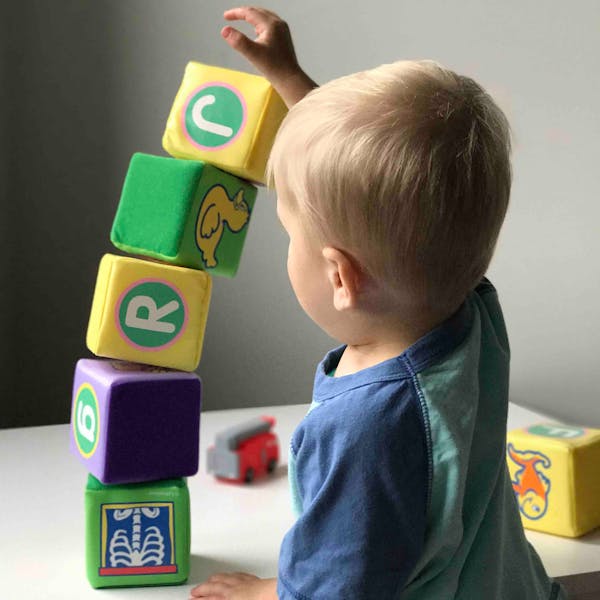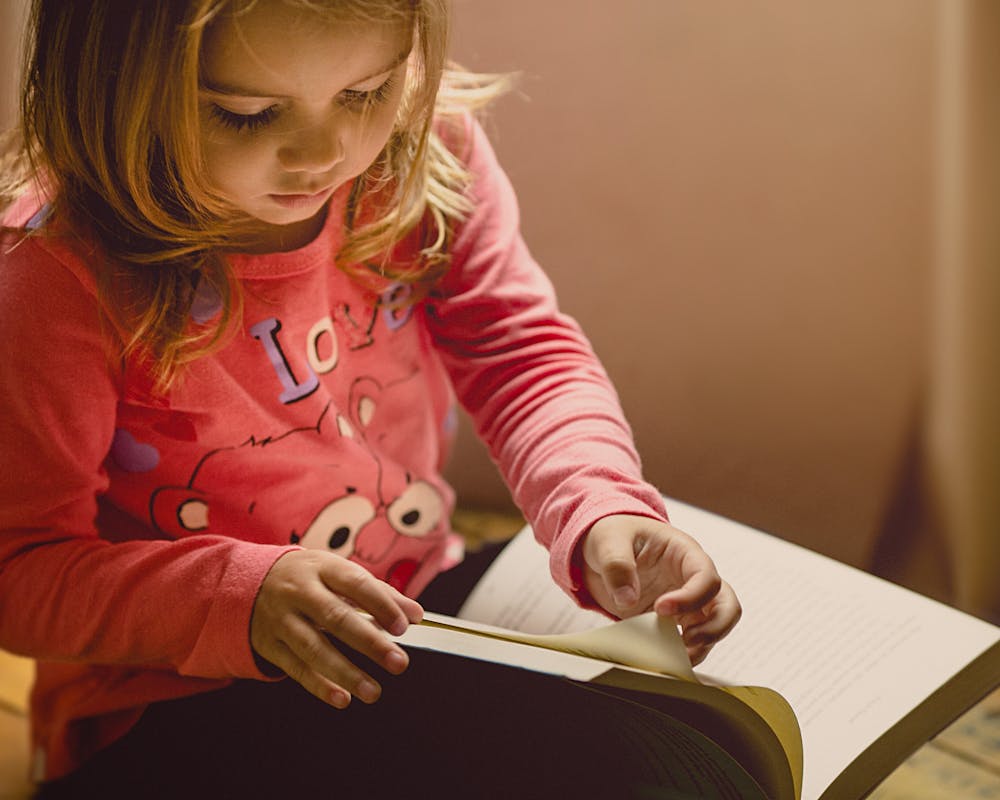You wouldn’t think twice about your child befriending an honor-roller who makes good decisions — but what about Xerg, intergalactic space pirate and smuggler? The stories your children read (or hear) greatly influence not just their language skills, but also their worldview. Kids treat characters like their friends, story settings like their homes, and dramatic conflict as their own personal learning experiences.
To adults stories are more for recreation, but to children, with their infinite imaginations, they’re an early introduction to the world. The types of stories they read and how they respond to the events therein affect your child’s development across a number of areas: self-esteem, creativity, emotional intelligence, and — not least of which — language mechanics.
If you’re curious about how the Little Blue Truck and other popular children’s stories are affecting your kids’ growth, we compiled a quick list of how the stories kids read shape their world.
Empathy and Emotional Intelligence

Every good story, for children or adults, has some emotional stakes. This is the common thread throughout the entire evolution of children’s stories, as true today as it was in ancient Greece. Kids pick up on the cathartic nature of storytelling just like adults, but for the young and inexperienced, it’s also a safe way to explore and experiment with these feelings.
For starters, the right story will teach kids how to properly express their emotions. Kids stories with pictures help children associate facial expressions with the corresponding emotions, and stories without pictures go into more detail describing the very nature of emotions, so our children can identity those feelings in themselves.
Moreover, children stories can demonstrate to kids that they’re not alone in their feelings, particularly those centered around children characters. The right story acts as a model, communicating that it’s perfectly normal to sometimes feel scared, shy, angry, etc., and suggesting healthy ways to deal with these emotions.
On that note, parents can also glean their own children’s emotional states by discussing these stories with them. Which characters your kids relate to, and how, can unearth some insights into your child’s wellbeing.
Creativity Training

Like a muscle training, the more your child uses their imagination, the stronger it becomes. Every time your child reads (or hears) a story, it engages the creative centers of their brains, from conjuring character voices to comprehending abstract concepts, i.e., legitimacy of a flying horse.
Creative thinking has advantages in all walks of life, in particular with problem solving. Even realistic stories nurture imagination, so as long as they’re engaged in a book, their creativity is improving.
Memory and Focus

Adults may take it for granted that they can follow a single plot through 200 or 300 pages, but kids need to work their way up to that point. Story books for kids help them build memory retention and focus by rewarding these skills with a pleasant experience — enjoying a good book.
At the earliest stages, children learn to recognize individual characters on new pages, as well as consistent personality traits. They learn some things are worth remembering, and become used to the idea that the same character will appear over and over again. The more they read, the longer their attention span, leading to longer story books for kids, and eventually YA novels.
Language Skills

Perhaps the most obvious influence of stories is teaching kids reading comprehension and other language skills. Whether oral or text, stories show children new ways to use words within definitive language rules.
Right away, new words build children’s vocabulary at a time when their brains are predisposed to language development. But there’s also the nuances of language that are best taught through examples: metaphors, colloquialisms, word pairings, puns, etc. These aspects of language are best learned through stories.
Confidence

What do all these benefits amount to? Added together, all the above benefits tend to give children a sense of confidence and a healthy self-esteem. By learning these skills passively through an activity they enjoy, children who read are more likely to participate in activities and take on new challenges.
Essentially, stories make children feel more equipped or ready to take on the world. In a way, stories are like risk-free practice runs on life. The experiences they read about are like their own, providing valuable context and foreknowledge when they attempt new tasks in the real world.
Conclusion: How to Encourage Your Children to Read
All the benefits above hinge on one crucial fact: your kid actually enjoys reading. Of course, this isn’t always the case, especially when children could just as easily watch a YouTube video to entertain themselves.
One of the best ways to get children interested in reading is with personalized books. Personalized children’s books incorporate photographs, text and facts about your child into the book, which allows young readers to be engaged at a greater level than they may be with traditional books. From saving a medieval village, to guiding lost aliens back into space, personalized books are a great way to instill a love of reading in children!
